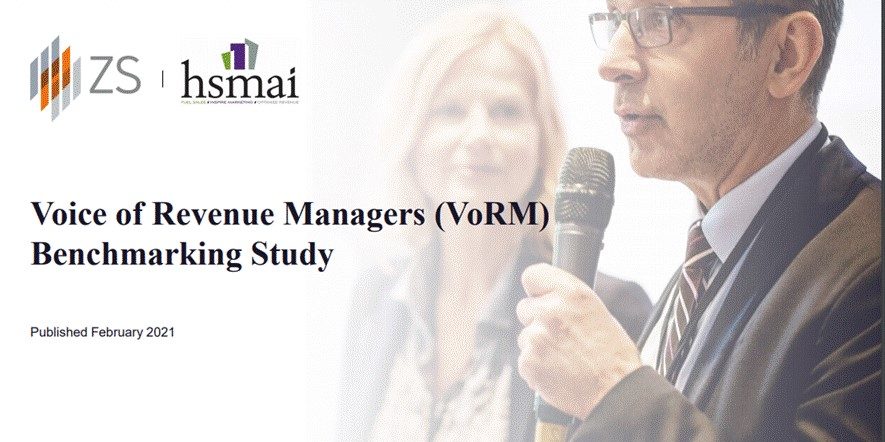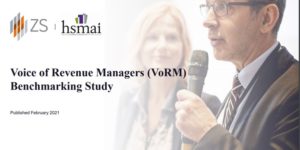ZS and The Hospitality Sales & Marketing Association International (HSMAI) have partnered to develop this Voice of Revenue Manager (VoRM) study to better understand how Revenue Managers are allocating their time. Among the key findings:
- Less than half of RMs time is dedicated to revenue generating activities (49% on average)
- RMs spend on average 5 weeks of full-time effort on RFPs and 6 weeks of full-time effort on budgets (between 8-17 weeks total on just these two activities across chain scales)
- RMs spend about 76% of their weekly time on non-stakeholder facing activities and only 18% of time with stakeholders. 13% of their week is spent updating the many systems they interact with, and only 5% in revenue strategy meetings.
The following resources are available:
» Study Press Release: ZS and HSMAI study shows hospitality revenue stumbling blocks
» Feature Article: Are revenue managers spending enough time actually generating revenue?
» Study Reports:
- Full Report
- Chain Scale Breakdown: Upper Upscale
- Chain Scale Breakdown: Upscale
- Chain Scale Breakdown: Luxury
- Chain Scale Breakdown: Midscale
Please provide the information below to receive a link to the full report and chain scale breakdowns.
» Study Videos
Results Commentary by study co-author Paresh Bhandari, ZS
Results Overview from Kelly McGuire, Managing Principal for Hospitality, ZS
Industry Implications with Rosewood Hotels









